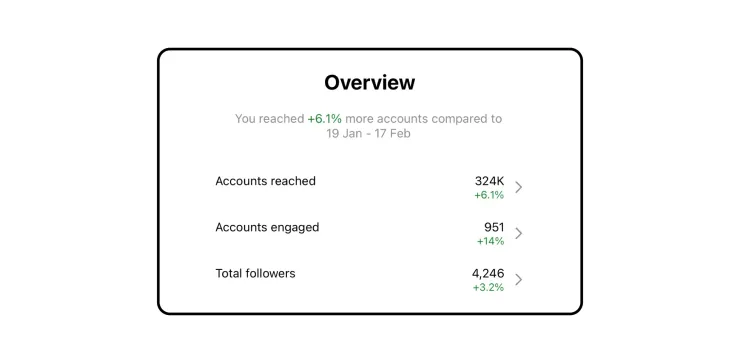Instagram marketing for small restaurants: a step-by-step guide
Instagram is a powerful platform for small restaurants like yours looking to showcase their offerings and connect with customers. Here are our top tips to help you get started on your Instagram journey, featuring our Flipdish customer Iro Sushi:
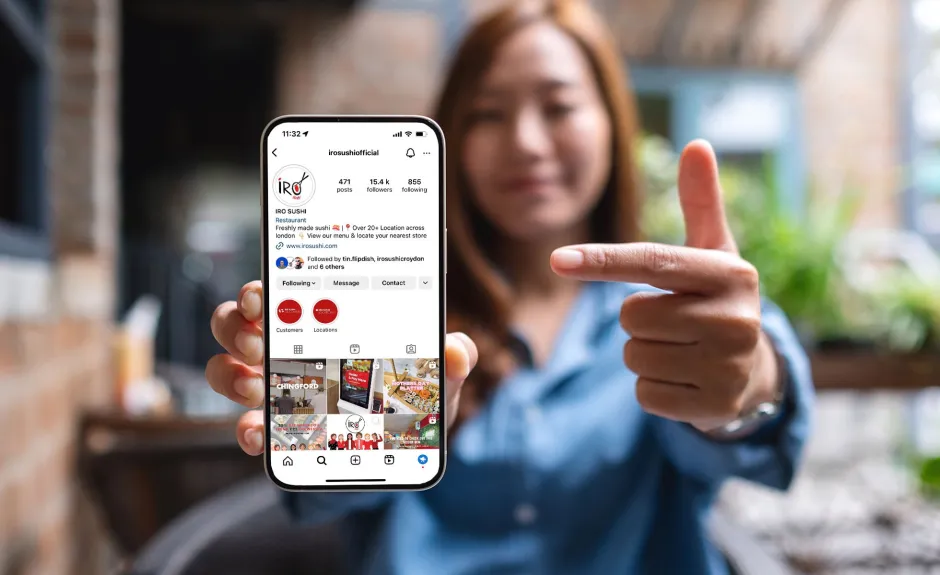
Set up your Instagram business account
The first step is to create a dedicated business account for your restaurant on Instagram. Remember to complete your profile with a clear bio about who you are and what you do, your restaurant's logo, and a link to your online ordering website.
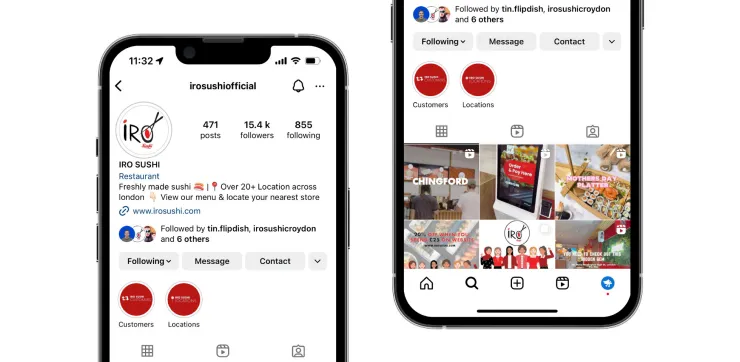
Define your brand aesthetic
Choose a consistent visual style and colour scheme for your posts: this helps to create a cohesive and recognizable look for your restaurant's Instagram feed.
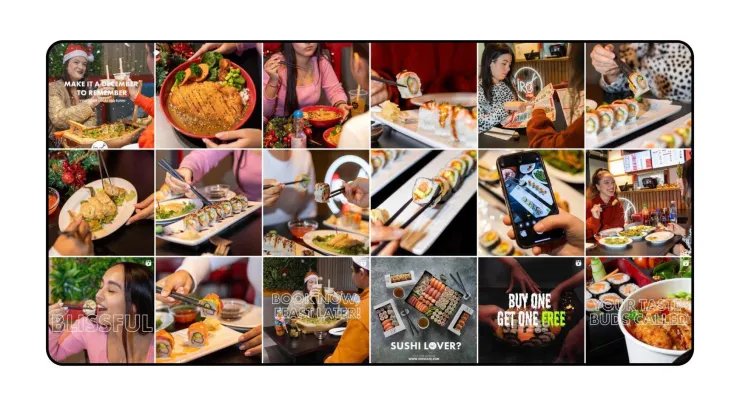
Create a content calendar
Plan your content in advance to maintain a consistent posting schedule. Mix up your content with photos of your dishes, behind-the-scenes reels, customer reviews, and special promotions.
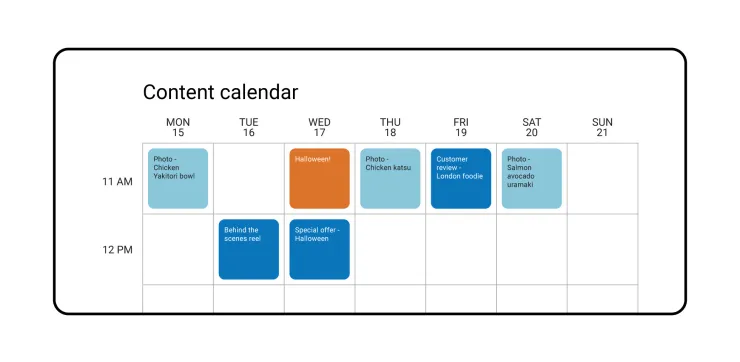
Use high-quality images
Invest in good food photography to make your dishes look irresistible. Use natural lighting and different angles to showcase the best features of your food.
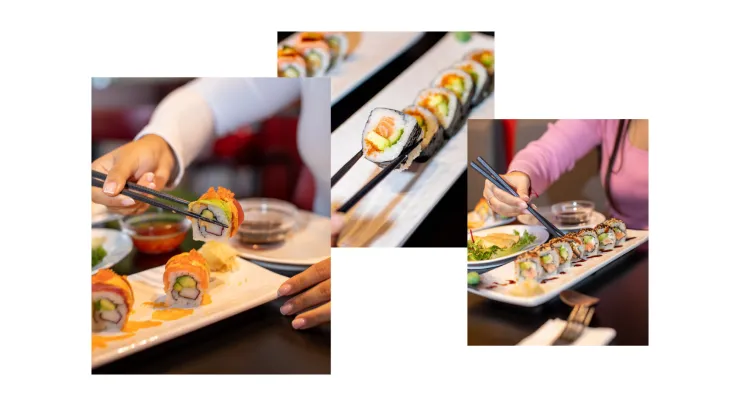
Engage with Your Followers
Respond to comments and messages promptly to build a relationship with your audience. Encourage customers to tag your restaurant in their posts and share user-generated content on your profile. You can use social media not only as a helpful tool to answer your customers’ questions, but also to let your restaurant’s personality shine.
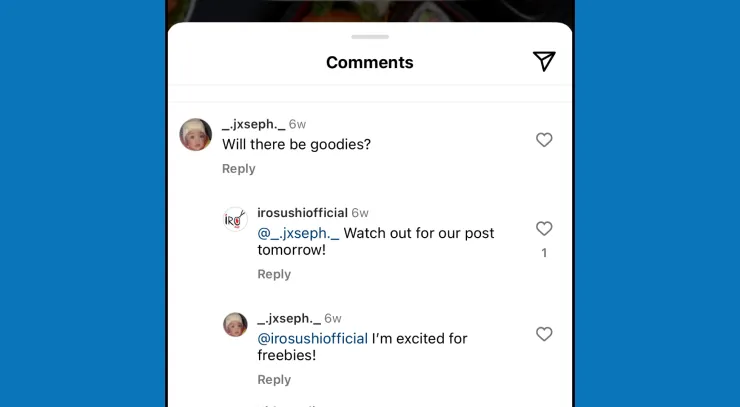
Utilise Instagram stories and highlights
Share temporary content on your Stories, such as daily specials, behind-the-scenes glimpses, or customer shoutouts. Use Highlights to categorise and save important Stories for longer visibility.
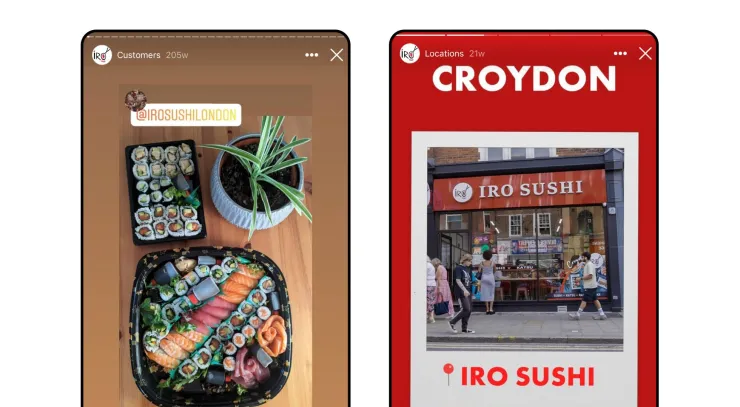
Leverage hashtags and geotags
Use relevant hashtags to increase the discoverability of your posts. Geotag your restaurant's location to appear in local searches, and use tags that specifically relate to your restaurant’s food type.
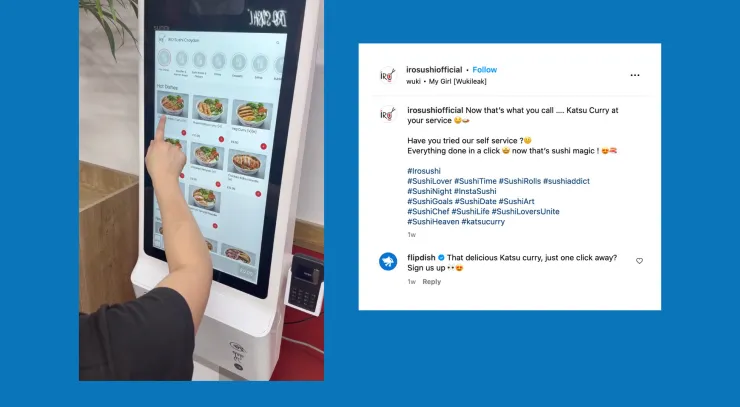
Run Instagram ads
Consider running targeted ads to reach a larger audience or promote specific offers. Use Instagram's ad manager to set your budget, target audience, and ad format.
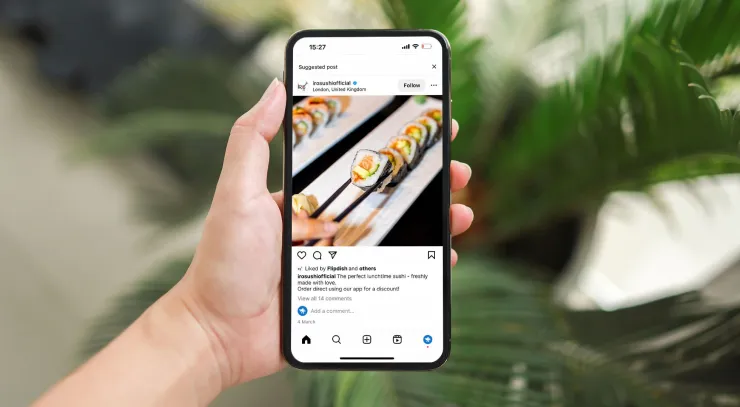
Analyse and adjust
Regularly check your Instagram Insights to understand what's working and what's not. Use this data to refine your content strategy and improve your engagement.
